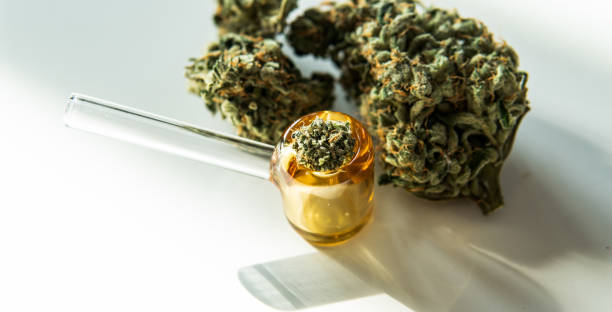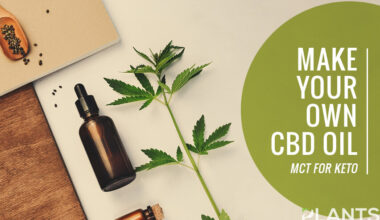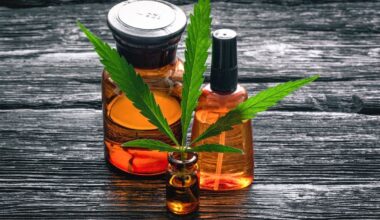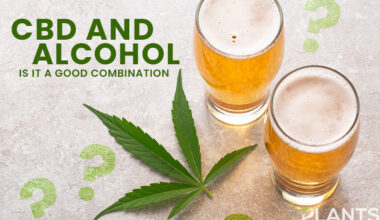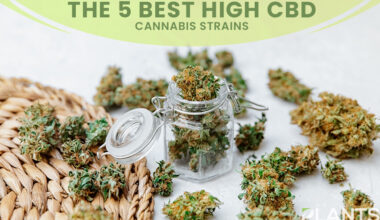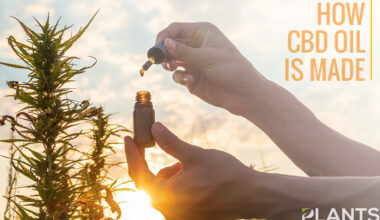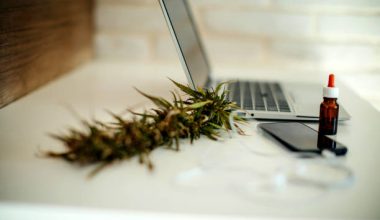As cannabis continues to evolve in the wellness and recreational markets, new products are emerging to cater to various preferences and needs. One such innovation is THCA edibles, a product that is gaining attention for its unique properties and potential therapeutic benefits. These edibles offer a different experience from traditional cannabis products, appealing to those who want to avoid the psychoactive effects of THC while still enjoying the plant’s potential health benefits. This article will provide an in-depth look at THCA edibles, explaining what they are, how they work, and the potential benefits they offer.
What Is THCA?
To understand THCA edibles, it’s important first to grasp what THCA is. THCA, or tetrahydrocannabinolic acid, is a naturally occurring compound found in raw cannabis plants. It is the precursor to THC, the compound that produces the well-known “high” effect. When cannabis is exposed to heat, such as through smoking, vaping, or cooking, THCA undergoes a process called decarboxylation. During this process, the acidic group is removed, and THCA is converted into THC, which is psychoactive.
However, when consumed in its raw form, such as in THCA edibles, it does not produce the high commonly associated with cannabis. Instead, THCA retains its non-psychoactive properties, which can offer a different set of potential benefits compared to THC-based products.
The Potential Benefits of THCA
While THCA is not psychoactive, it has garnered interest for its potential health benefits. Some studies and anecdotal evidence suggest that THCA may offer a variety of therapeutic effects. These benefits include:
- Anti-inflammatory properties: THCA has been suggested to reduce inflammation, which could benefit individuals with conditions such as arthritis, fibromyalgia, and other inflammatory disorders.
- Neuroprotective effects: THCA may offer protection to brain cells, potentially helping in conditions like Alzheimer’s disease or Parkinson’s disease. Its neuroprotective properties could be beneficial in slowing cognitive decline.
- Antioxidant effects: Like other cannabinoids, THCA is believed to have antioxidant properties, which may help protect cells from damage caused by free radicals and oxidative stress.
- Nausea and vomiting relief: Some users report that THCA helps alleviate nausea, making it a potential option for individuals undergoing chemotherapy or dealing with digestive issues.
While research on THCA is still in its early stages, these benefits are prompting further exploration into its potential applications in medicine and wellness.
What Are THCA Edibles?
THCA edibles are food products infused with THCA, the non-psychoactive form of THC. These edibles come in a variety of forms, including gummies, chocolates, beverages, and more, providing a discreet and convenient way to consume cannabis without experiencing a high. Unlike traditional THC edibles, which produce a psychoactive effect after decarboxylation, THCA edibles are made from raw cannabis or extracts that have not been heated, preserving the THCA in its original form.
As a result, THCA edibles offer a more subtle experience. Rather than producing the euphoric effects of THC, THCA provides the consumer with the potential therapeutic effects associated with the compound, such as anti-inflammatory and anti-nausea benefits.
How Do THCA Edibles Work?
When you consume a THCA edible, your body processes it much like any other edible. The digestive system breaks down the product, and the THCA is absorbed into the bloodstream. Since THCA is not psychoactive in its raw form, it doesn’t undergo decarboxylation in the digestive process like THC would. This means that THCA edibles do not cause a “high,” but rather offer the beneficial effects that THCA itself is thought to provide.
The effects of THCA edibles can take anywhere from 30 minutes to two hours to be felt, depending on your metabolism, the type of edible, and the dosage. The effects are generally more subtle and may include a sense of relaxation, pain relief, or alleviation of inflammation. Many users find that THCA helps with chronic conditions without inducing the typical high that comes from THC.
The Benefits of THCA Edibles
Though THCA edibles don’t offer a high, they still provide a range of potential benefits, making them an attractive option for those who want to experience the therapeutic effects of cannabis without the intoxicating effects of THC. Some of the key benefits of THCA edibles include:
- Non-psychoactive effects: THCA edibles provide an alternative for those who want the medicinal benefits of cannabis without feeling high. This makes them ideal for individuals seeking pain relief, inflammation reduction, or other benefits without the altered mental state typically associated with THC.
- Relief from inflammation: Thanks to THCA’s anti-inflammatory properties, these edibles may help reduce inflammation in the body, which could be useful for people with arthritis, autoimmune conditions, or muscle injuries.
- Alleviation of nausea: THCA is thought to have anti-nausea properties, making THCA edibles a potential option for individuals undergoing chemotherapy, as well as those who suffer from digestive issues or motion sickness.
- Neuroprotection: THCA’s potential neuroprotective effects may help support cognitive function, potentially benefiting individuals with neurological conditions.
- Mood stabilization: Some consumers report feeling more balanced and calm after using THCA edibles. THCA may help reduce anxiety or stress without causing drowsiness or sedation.
How to Use THCA Edibles
Using THCA edibles is similar to using other cannabis edibles. It is important to start with a small dose, especially if you are new to cannabis or unsure of your tolerance. The packaging for most edibles will provide a recommended dose, but it’s always a good idea to start low and go slow.
The effects of THCA edibles can take time to kick in, so be patient and wait at least an hour before considering taking more. Unlike smoking or vaping cannabis, which provides more immediate effects, the process of digestion and absorption can make edible consumption slower to take effect. It’s important to remember that even though THCA is non-psychoactive, consuming too much may lead to digestive discomfort or other mild issues.
Legal Status of THCA Edibles
The legality of THCA edibles varies depending on where you live. In regions where cannabis is legalized for medicinal or recreational use, THCA edibles are generally permitted. However, in areas where cannabis remains illegal, THCA edibles may also be restricted or prohibited.
If you’re considering purchasing or using THCA edibles, it’s crucial to check your local laws and regulations regarding cannabis products. As cannabis laws continue to evolve, the legal landscape for THCA products may shift as well.
Conclusion
THCA edibles are an exciting new product for cannabis enthusiasts and those seeking therapeutic benefits without the psychoactive effects of THC. While still a relatively new option, these edibles offer a unique way to experience the potential healing properties of cannabis, particularly for those interested in reducing inflammation, alleviating nausea, or supporting brain health.
Whether you’re looking to relieve chronic pain or simply avoid the high associated with THC, THCA edibles provide a non-intoxicating alternative that could have a place in your wellness routine. As always, it’s important to consume cannabis products responsibly and understand the legalities in your area before making a purchase.
Medical Disclaimer:
The information provided in these blog posts is intended for general informational and educational purposes only. It is not a substitute for professional medical advice, diagnosis, or treatment. Always seek the advice of your physician or other qualified healthcare provider with any questions you may have regarding a medical condition. The use of any information provided in these blog posts is solely at your own risk. The authors and the website do not recommend or endorse any specific products, treatments, or procedures mentioned. Reliance on any information in these blog posts is solely at your own discretion.

